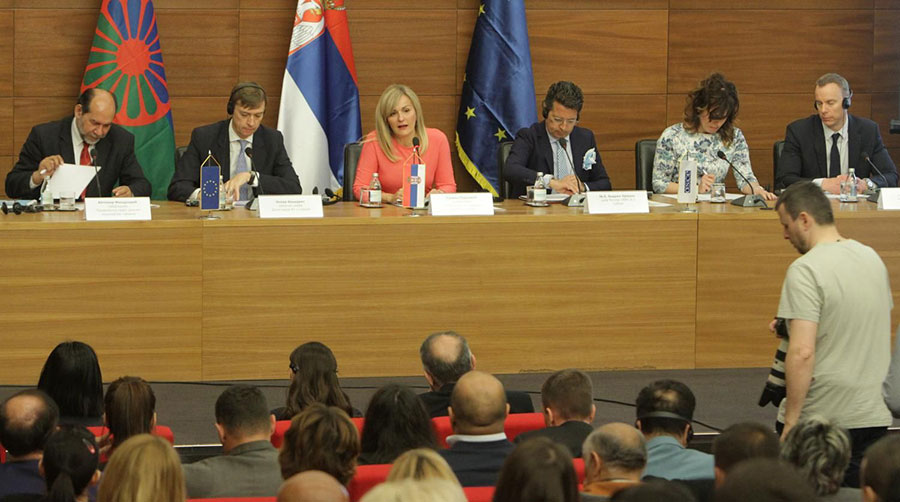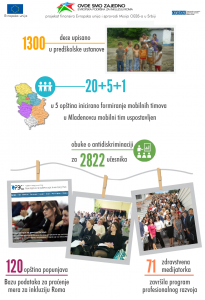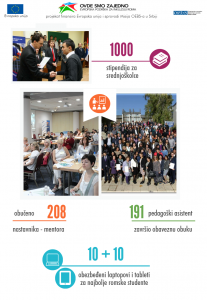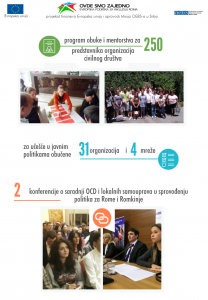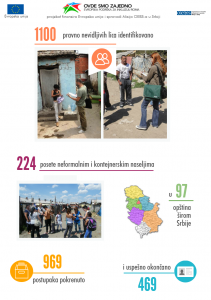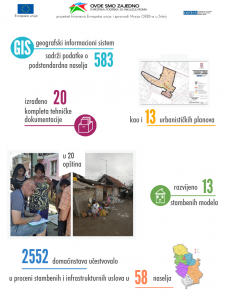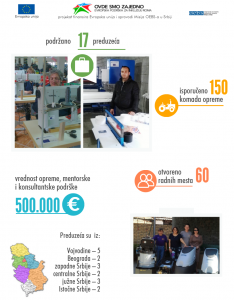The EUR4.8 million worth EU-funded project “We are here together – European support for Roma inclusion” is described by the project partners – OSCE Mission to Serbia and the Office for Human and Minority Rights – as one of the most successful projects in the last decade.
Among the achievements of the project are 1,000 scholarships granted to high school students, training of 250 representatives of CSOs, the preparation of 13 urban development plans, identification of 1,100 legally invisible persons, the creation of 60 new jobs, enrolment of 1,300 children in pre-school institutions, support for 17 companies, the development of geographic information system with the data on 583 substandard Roma settlements.
The Deputy Head of the EU Delegation to Serbia Oskar Benedikt said that support for Roma inclusion was at the top of Union’s priorities.
“This project will be followed by another one in order to ensure the continuity of service provision, especially the mobile units, and tangible cooperation with municipalities. We attach great importance to scholarships; that segment was implemented with the Ministry of Education and will continue in the same manner,” Benedikt said.
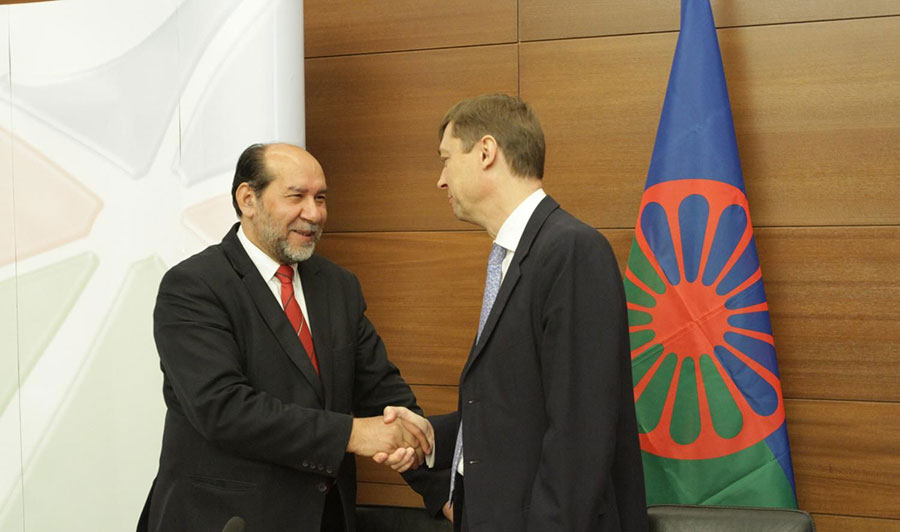
FoNet
“Helping minorities and the most discriminated against is a part of our heritage. We have to support the vulnerable. This is one of the commitments within the chapter 23 which is under our close scrutiny,” Benedikt said.
Head of the OSCE Mission Andrea Orizio said that taking part in the project was very important for the Mission as Roma inclusion was an essential part of modernisation of the country and establishment of the rule of law.
“I have to say we are very proud. Through our greater participation in the project, we have managed managed to cover all interested municipalities. We have laid foundations that can be further built on,” Orizio said.
The Director of the Serbian Government Office for Human and Minority Rights Suzana Paunovic said that the project yielded important results in all six key areas: access to fundamental rights, establishment of mobile teams, strengthening the capacity of civil society, education, housing and employment of Roma.
Paunovic said that over the course of three and a half years mobile support units have been established, 583 substandard Roma settlements have been identified, whereas the municipalities not covered by the project have introduced this model as the most efficient approach to dealing with the issues of Roma.
The President of the National Council of the Roma national minority Vitomir Mihajlovic said that the project laid the foundations for the formation of mobile support units in another 70 municipalities apart from the 20 initially covered by the project.
As of June 2013, the project has supported the implementation of the National strategy for improvement of the status of Roma in the Republic of Serbia in certain areas such as access to fundamental rights, civic participation, education, health and social protection, adequate housing and creation of new jobs.
- Access to fundamental rights – The project provided legal aid and supported Roma to obtain personal documents, register for health, education and social services, and access their rights as citizens. More than 969 administrative and court procedures have been initiated with 469 solved in 20 pilot municipalities/towns.
- Establishment of mobile teams – The mobile teams for Roma inclusion consist of Roma municipal coordinators, pedagogical assistants, health mediators, as well as representatives of the Centres for Social Work and the National Employment Service. Mobile teams have helped around 600 children to enrol in preschool institutions. A total of 2,822 participants took part in training in non-discrimination for local social and health service providers.
- Empowerment of civil society organisations – Following the mapping of Roma civil society organisations, as well as organisations focused on Roma integration, 31 CSOs and four networks took part in three training cycles. 250 representatives of CSOs received mentorship assistance. CSOs also received support regarding adoption and implementation of local Roma policies.
- Drop-out prevention programs in schools – In order to prevent high school drop-out rates in Serbia, Roma students were granted 1,000 scholarships. They are also provided with mentor and peer support. The project enabled certification of 191 pedagogical assistants and training of 208 mentors.
- Improving housing conditions – Based on the results of a detailed analysis of 58 substandard Roma settlements (in 20 pilot municipalities as well as Obrenovac) a priority list has been created for the development of infrastructure projects. 13 urban development plans have been devised in 11 municipalities. 13 housing models for Roma have been developed, allowing municipalities to chose the ones they deemed best. Technical documentation has been developed for 20 infrastructure project. The mapping of 583 substandard Roma settlements in Serbia has been finalised along with the geographic information system that will enable the monitoring and improvement of housing conditions.
- Sustainable employment – In order to create new opportunities for Roma employment, selected companies with the potential to employ Roma and Roma entrpreneurs were provided with 150 items of equipment, as well as mentor support and training. These 17 companies created 60 new jobs for Roma.
20 pilot municipalities were included in the project: Bela Palanka, Bojnik, Bujanovac, Knjazevac, Koceljeva, Kovin, Kragujevac, Krusevac, Leskovac, Novi Sad, Odzaci, Palilula, Pancevo, Prokuplje, Semderevo, Sombor, Valjevo, Vranje, Zitoradja and Zvezdara.
European Support for Roma Inclusion is a EUR4.8 million worth project, funded by the European Union and implemented by the OSCE Mission to Serbia, aimed at helping the institutions of the Republic of Serbia to improve the status of Roma in the following areas: access to fundamental rights, civic participation, labour market, education, health, social protection, adequate housing and job creation. Main partners of the project are the Office for Human and Minority Rights, the Ministry of Health, the Ministry of Labour, Employment, Veteran and Social Affairs, the Ministry of Education, Science and Technological Development, the Ministry of Construction, Transport and Infrastructure, the Standing Conference of Towns and Municipalities, NGO Praksis, Roma Education Fund, SEIO and Social Inclusion and Poverty Reduction Unit.

